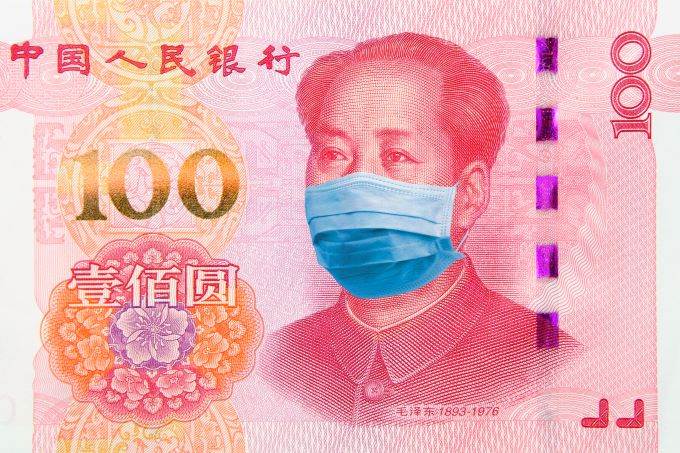 Global stock markets were broadly higher on Tuesday afternoon in Asia as Chinese government officials worked hard to quell the panic that has been rising worldwide surrounding the coronavirus which has now killed close to 500 people in just over a month.
Global stock markets were broadly higher on Tuesday afternoon in Asia as Chinese government officials worked hard to quell the panic that has been rising worldwide surrounding the coronavirus which has now killed close to 500 people in just over a month.
South Korea’s Kospi lead the gains, surging 1.76 percent as of 2:32 p.m. HK/SIN. Honk Kong’s Hang Seng Index was up 1.17 percent even though the first coronavirus death was reported in the district, and Japan’s Nikkei 225 was up 0.49 percent. Both of China’s benchmark indexers were trading up more than 1 percent after falling steeply on Monday. The Shanghai Composite closed down 7.72 percent on Monday, and the Shenzhen Composite slumped 8.45 percent during China’s first trading day after the Chinese New Year which kept markets closed in recent days.
The gains followed a positive day on Wall Street on Monday during which the NASDAQ closed up 1.34 percent, the S&P 500 ended higher 0.73 percent, and the Dow Jones Industrial Average ended 0.51 percent higher. Of specific interest on Wall Street on Monday was Tesla’s stock price which jumped nearly 20 percent in a single day, the company’s biggest daily gain in 6 years, after research house Argus Research raised its price target for Tesla and its predictions about earnings per share. Tesla posted stronger-than-expected earnings reports last week which prompted the new predictions.
The Chinese government and media have been hard at work trying to quell fears both about the spread of the virus and concerns about the impacts that the rapidly spreading virus will have on the global markets. A state-affiliated outlet, China Securities Journal, published on Tuesday that the country’s long-term fundamentals will not be altered due to the virus, even if a negative economic impact will be felt in Q1 2020.
Reuters pointed out that North Korea, a country long suffering from sanctions, could be even more damaged by coronavirus contagion fears and the country’s close proximity to China. North Korea has stopped flights and train service to China and has suspended the majority of cross-border travel, which will harm the country’s tourism industry. Korean leader Kim Jon Un has promised to breathe new life into the country’s economy, and the recent turn of events may make this promise nearly impossible.
Oil prices jumped on Tuesday as traders cautiously tested market optimism and Saudi Arabia announced that it might cut production to counterbalance the demand decline caused by the coronavirus. U.S. WTI futures surged 1.06 percent by the mid-afternoon in Asia, to trade at $50.64 per barrel. Brent crude futures were up 0.77 percent to $54.87 per barrel.
The dollar also gained against the yen as traders cautiously stepped back from safe-haven assets. The greenback was up 0.2 percent to 108.89. It also gained against the pound, trading up 0.023 percent to $1.299 as Brexit fears pushed the sterling lower. The euro eased against the dollar, falling 0.036 percent to trade at $1.1054.
